Preventative COVID-19 drug could help more Mississippians
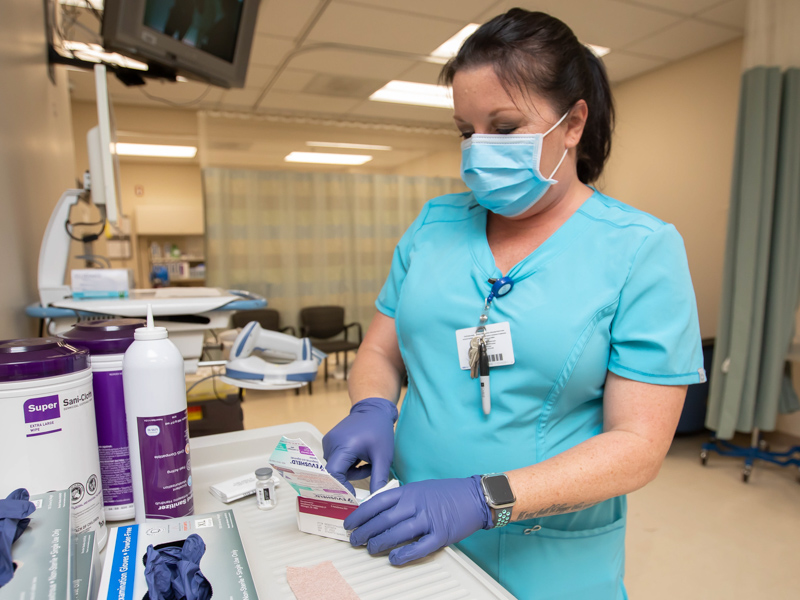
Duck Hill resident Kimberly Cooley is determined to do all she can to protect the life-saving liver she received in December 2018 at the University of Mississippi Medical Center.
That’s why Cooley, on anti-rejection drugs for life that suppress her natural immunity to infection, sought out the drug trademarked as Evusheld to provide COVID-19 antibodies she can’t develop on her own, despite being vaccinated and boosted against the virus.
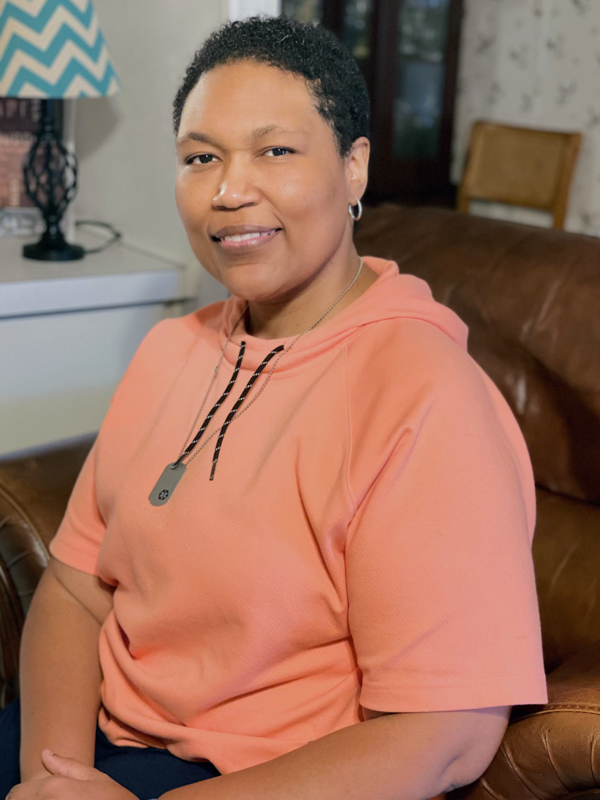
“Evusheld is the difference between me succumbing to COVID-19, or surviving it,” said Cooley, an independent public relations advisor who remains under the care of the abdominal transplant team at University Transplant. UMMC houses Mississippi's sole organ, tissue and bone marrow transplant program.
“Even after receiving the three Pfizer shots, I had negative antibodies,” she said. “I was at square one, with no protection at all from the Omicron variant. Evusheld was my last hope.”
If you’ve had an organ or bone marrow transplant, are receiving chemotherapy or on drugs that suppress immunity, your risk is higher for COVID-19, a potential disaster for someone weakened by a serious or significant medical condition.
That’s why UMMC caregivers are encouraging adults and older adolescents who are immunocompromised to be proactive by receiving Evusheld. It’s a treatment widely underutilized in the state, and the Medical Center has a good stock of the two-dose regimen on hand.
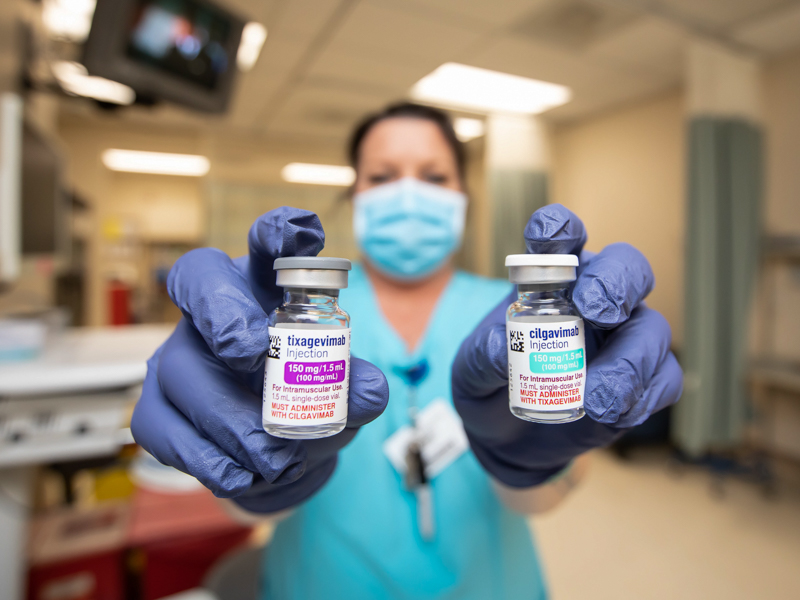
The drug is intended as a preventative for those who have not already had COVID-19, who are not currently infected, and who have not recently had contact with someone who is infectious with the virus. State Health Officer Dr. Thomas Dobbs in recent weeks has urged any immunocompromised Mississippian who qualifies for the drug to get it.
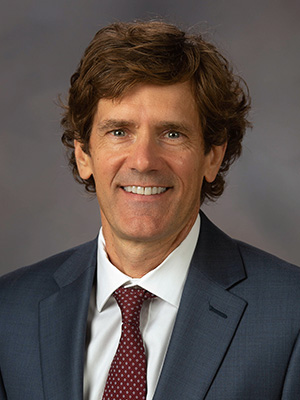
“If you have a weakened immune system due to cancer treatment or an organ transplant - please talk to your oncologist or transplant doc about Evusheld,” Dobbs tweeted last month. “MS has over 2k unused doses.”
Although research remains ongoing, experts believe Evusheld can provide up to six months’ protection.
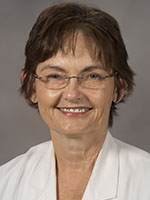
“We have plenty,” said Dr. Stephanie Elkins, medical director of UMMC’s Division of Hematology/Oncology. “It’s intended for prevention of COVID for patients who could not receive the vaccine, or for those who didn’t get a good immune response when they had the vaccine.”
Mississippi was a national leader in providing monoclonal antibody treatments for patients who tested positive for the virus during the COVID-19 Delta wave in summer 2021. Only one monoclonal antibody treatment, Sotrovimab, has been determined to be effective against the Omicron variant, and it’s in short supply in Mississippi and nationally.
There are two oral antiviral medications available in Mississippi, Paxlovid and Molnupiravir, for those already infected.
Initially, Elkins said, UMMC had a very short supply of Evusheld. “We were very guarded in who we gave it to,” she said. “Now that we have more, if you fall into the group that’s eligible, we are giving you the two shots.”
Both doses are given at the same time, she said, usually in the patient’s hip and not intravenously. She knows of no UMMC patients who had an adverse reaction to Evusheld, although there are reports nationally of a very small number of patients who had a cardiovascular complication.
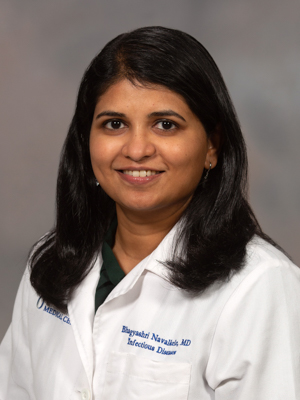
Of the thousands of immunocompromised Mississippians who have succumbed to the virus, Evusheld could have helped many “against developing severe disease and death from COVID-19,” said Dr. Bhagyashri Navalkele, an assistant professor in the Division of Infectious Diseases and medical director of infection prevention.
Evusheld is not a replacement for the COVID-19 vaccine. A list of locations across the state that administer Evusheld can be found on the Department of Health website.
“Evusheld is an additional important and effective COVID-19 prevention tool available for those with a weak immune system,” Navalkele said. “People with a weak immune system, irrespective of vaccination status, or those who cannot receive COVID-19 vaccination due to some contraindication should strongly consider Evusheld to well protect themselves against this deadly virus.”
Cooley got her first dose of Evusheld on Feb. 1, before it was determined that a second dose was beneficial. She got the second shot in early March.
She had no adverse effects – “not so much as a sore shoulder,” Cooley said.
It’s frustrating to Cooley that so much of the drug is going unused in the state when it could potentially save lives. “You should get it while you can,” Cooley said. “It’s pointless to have the opportunity to be proactive, and then decide against it and wait until you become infected to get monoclonal antibodies. Then, it could be too late.”
“Myself as a transplant patient, long COVID will always be my biggest fear. I’m going to do everything I can to be as proactive as possible,” she said.
Just because she’s received Evusheld, though, doesn’t mean she will cease the precautions she’s been taking for more than two years. “I move in a calculated manner. I always mask outside my house, and there are no visitors to my home,” she said. “I’m a caregiver for my mom.”
For now, Cooley said, she’s breathing easier.
“I feel significantly better about surviving it, should I become infected,” she said.


